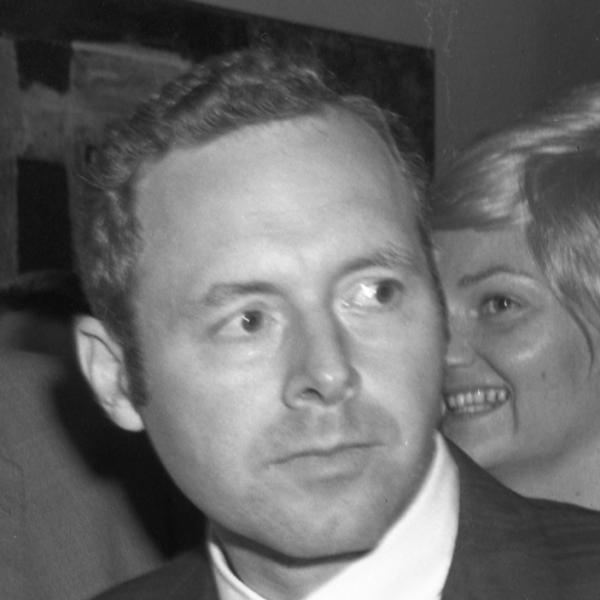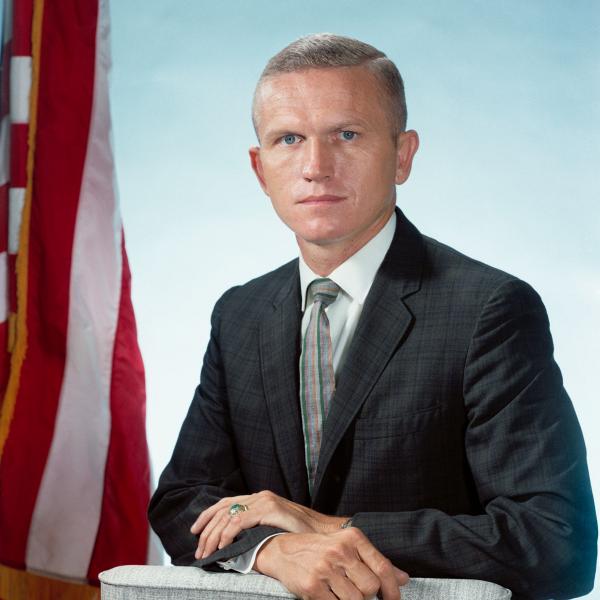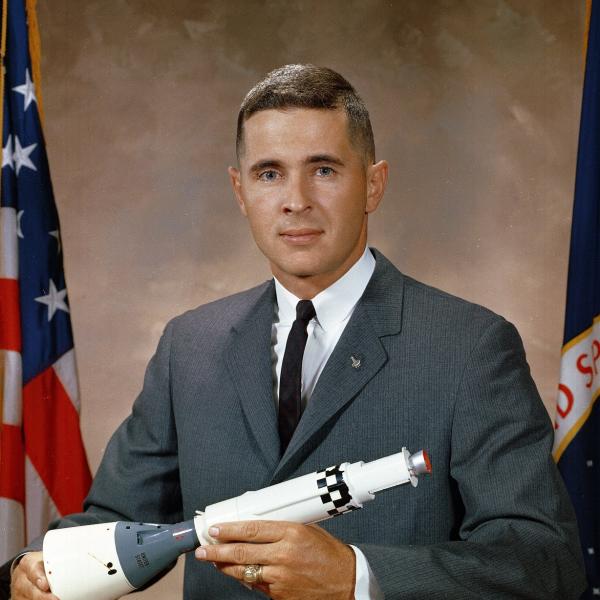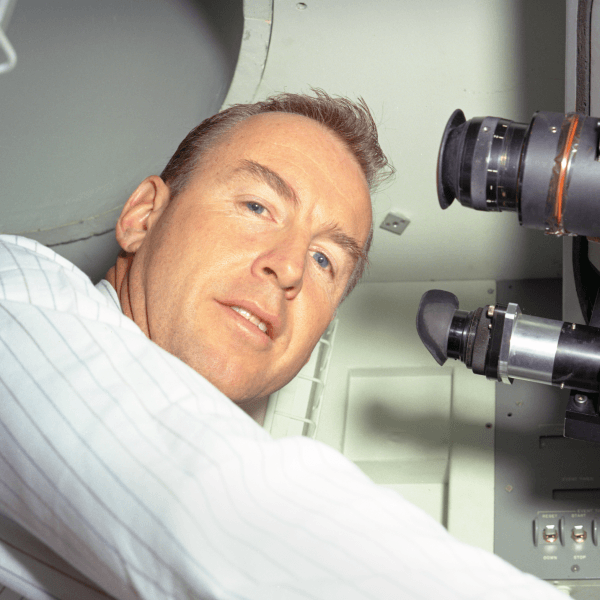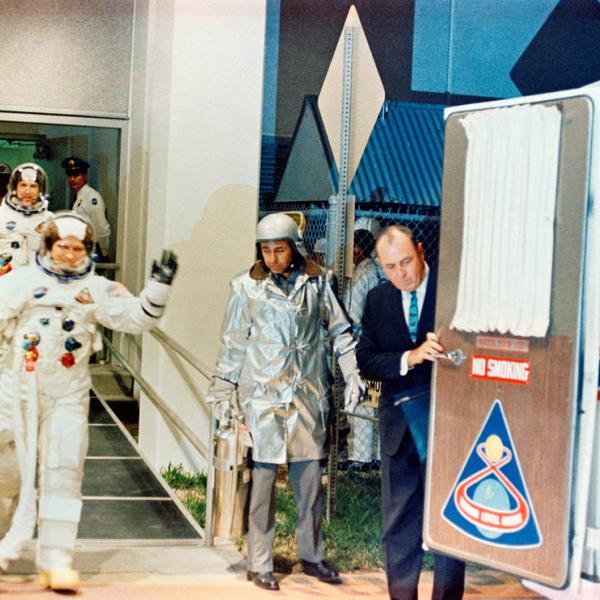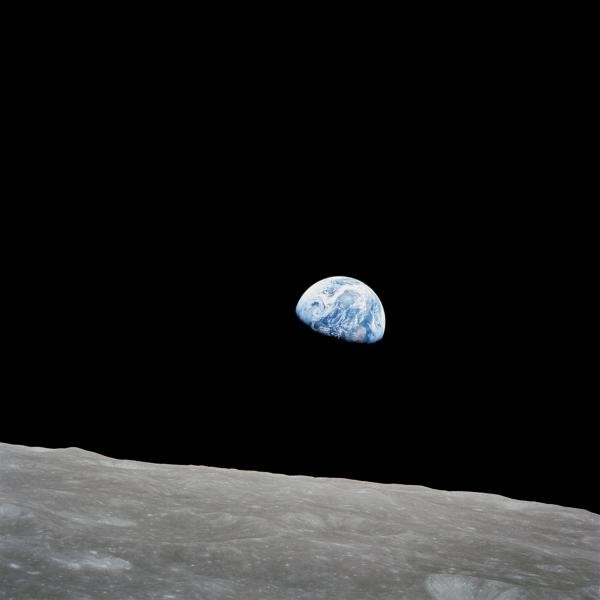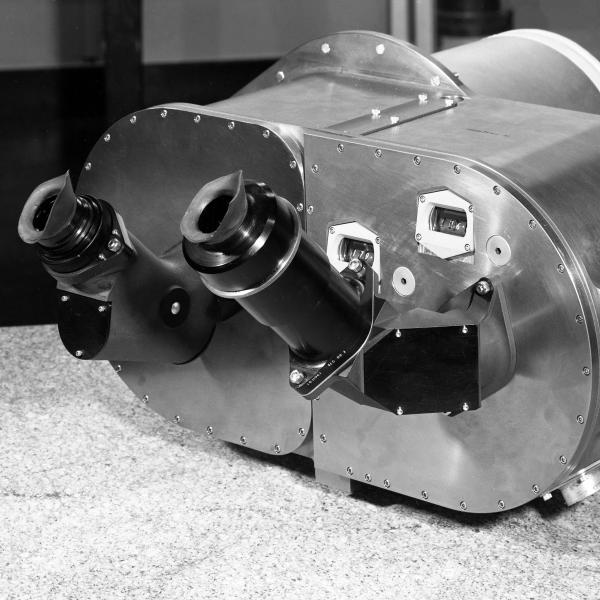
In Their Own Words: Fred Martin on Apollo 8
Fred Martin wore many hats during his time at Draper and the Apollo Project, including computer engineering, software engineering, and programming.
"The highlight of what was very significant for us was the passing of the spacecraft behind the moon in Apollo 8 because the very fact of firing the engine on our own, you might say, and the very fact of measuring the forces that the engine had caused and then doing the calculations in the arithmetic to show what the Orbit has changed and the fact that we were very accurate about it… and then the thing emerges in a trajectory that is acceptable—it didn't blow up—was a validation of a lot of the thinking and the work that was done. That's one of the reasons that made the Apollo 8 program so significant for MIT was the fact that it worked and that was very gratifying even though it was incredibly nerve wracking.
When we lost the signal… First of all everything worked in that program. The mission was a nominal case and there was some correction midcourse, corrections that were expected. The astronauts didn't make any mistakes as far as I know, they're on the way to the moon. They did their star sighting, communications were all there. Everything was working. And then you get going on the far side and you lose your signal for 43 minutes or something like that.
Well now you're in the SCAMA room and people have been there for a few days because it took 2 ½ days to do it. They had been listening to the chatter going back and forth between NASA, Houston, and the astronauts, and everybody is in good spirits. So you go behind the moon and you know that there's going to be a firing back there to get into lunar orbit so it was silent, really silent, for 45 minutes, approximately. We're MIT, so we think the world revolves around the guidance and navigation system. I'm sure the people who made the engine are really worried about whether engine is going to explode or not, but we were not in that SCAMA room, so when they came out the other side and NASA started to call them and they didn't answer right away, maybe for 50 seconds or a minute something like that, people got really worried.
When they did answer, there was a great amount of relief and congratulations and all that kind of stuff."
